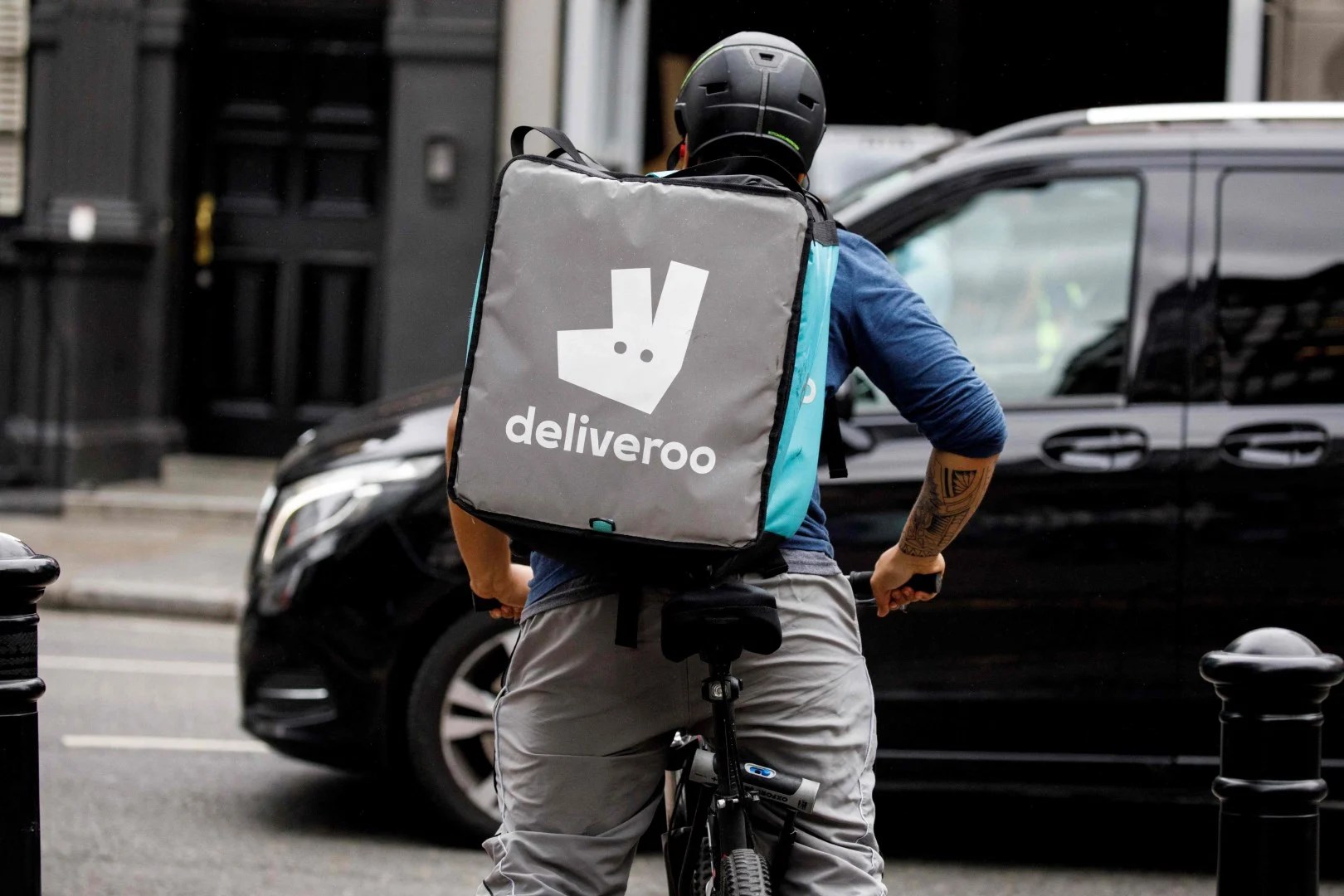UK's Deliveroo sees drop in losses, jump in revenue post cost-cutting
According to Deliveroo, £250 million would be returned to investors, which would help its share price to grow more than 3% in early London trading.
-

A Deliveroo food courier makes a delivery in London, UK, September 11, 2019. (AFP)
International food delivery app, Deliveroo, was reported Thursday to have its net losses almost halved in the first six months this year after its decision on cost-cutting saw higher revenues.
In its statement, the company, which is headquartered in London, said that after tax, losses dropped 46% to £83 million ($106 million) as opposed to the first half of last year.
Revenue increased 5% to £1 billion as inflated food prices offset falling orders amid a cost-of-living crisis and controversy over the treatment of riders.
Chief executive Will Shu, who founded the company almost 10 years ago, said: "We have delivered a strong financial performance despite challenging macroeconomic conditions".
According to Deliveroo, £250 million would be returned to investors, which would help its share price grow to more than 3% in early London trading. Earlier this year, it cut around 350 jobs or about one-tenth of its non-rider workforce.
The delivery company experienced massive demand during the Covid pandemic as a result of the lockdown, and thus has tens of thousands of self-employed riders, which remains a matter of controversy.
Read more: UK economy continues tumbling, borrowing rate hits 2008-high
Back in June, the EU supported plans which could force Deliveroo and other gig-economy companies, such as Uber to treat workers as employees - providing them labor rights.
In its Thursday earning statement, the company stated: "We continue to see strong rider application pipelines and rider retention rates," adding: "However, we have actively managed our rider fleet size by onboarding fewer new riders in the period to reflect the impact of macroeconomic conditions on order volumes."
Living standards in the UK are being squeezed more severely than at any point since records have been kept in the 1950s, as soaring inflation erodes wage growth for employees across practically all economic sectors.
Former US Treasury Secretary Larry Summers said back in July that Brexit will be memorialized as a "historic economic error" that has damaged the UK's economy after having helped inflation surge, as it led to higher consumer costs, and the country's economic policy has been for several years "substantially flawed".
Brexit "reduced the competitiveness of the UK economy, put downwards pressure on the pound and upwards pressure on prices, limited imports of goods and limited in some ways the supply of labor," which all culminated in higher inflation rates.

 3 Min Read
3 Min Read








